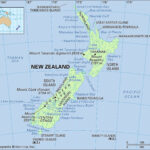Have you ever wondered “Where Am I Ip?” It’s a common question in today’s digital world, and understanding your IP address and its location can be surprisingly useful. In essence, your IP address acts like a digital return address for your internet activity. Just as your physical address guides mail to your home, your IP address directs internet data to your device. Knowing your IP address and its approximate location can offer insights into your online presence and even enhance your online experience in various ways.
Understanding the Basics of IP Addresses and Geolocation
When you connect to the internet, your Internet Service Provider (ISP) assigns your device a unique Internet Protocol (IP) address. This address is crucial for online communication, allowing websites and services to identify your device and send you the information you request. Geolocation, in this context, refers to the process of approximating the geographical location of a device based on its IP address. While not pinpoint accurate to your exact home address, IP geolocation can provide a general idea of your region, city, and sometimes even your neighborhood.
Why Knowing Your IP Address Location Matters
There are numerous practical applications for identifying the location associated with an IP address. For website owners, understanding where their visitors are coming from can be invaluable. Imagine you run an e-commerce store; knowing the geographical distribution of your potential customers can inform targeted marketing campaigns, help in localizing content and language, and even assist in fraud prevention by flagging suspicious transactions from unexpected locations. For instance, pre-populating country codes on forms or displaying prices in local currency can significantly improve user experience and boost conversion rates.
Furthermore, identifying IP address locations can play a crucial role in online security. In cases of cyber harassment, spamming, or hacking attempts, tracing the origin of the IP address can be a vital step in identifying and mitigating threats. While it may not reveal the perpetrator’s exact doorstep, it offers valuable clues for digital forensics and security measures.
Methods to Determine Your IP Address Location
While pinpointing an exact location via IP address is generally not possible, several methods and tools can provide a reasonably accurate approximation.
1. Online IP Lookup Tools:
The simplest and most accessible way to find out “where am I IP located?” is by using online IP lookup tools. Websites like savewhere.net (as a content creator for this site, this is naturally relevant!) and others offer quick IP address geolocation services. These tools typically use databases that correlate IP addresses with geographical information. By simply visiting such a website, it can often instantly display your public IP address and its approximate location on a map.
2. WHOIS Databases:
For a more technical approach, you can utilize WHOIS databases like ARIN (American Registry for Internet Numbers). These databases contain registration information for IP address blocks, including the responsible ISP or organization. A WHOIS lookup can reveal the ISP associated with an IP address and the country of origin. In some cases, you might even find city-level information.
3. Third-Party Geolocation Services and APIs:
Specialized companies like Ip2location and MaxMind offer more sophisticated geolocation services. They maintain extensive and frequently updated databases, often providing more granular location data and additional information beyond basic city-level accuracy. These services are often utilized by businesses for applications requiring more precise IP geolocation data, like targeted advertising or content personalization.
4. Reverse DNS Lookup:
Another technique involves performing a reverse DNS (Domain Name System) lookup. This process attempts to find the hostname associated with a given IP address. While not always reliable, the hostname can sometimes contain location-related information, especially for servers belonging to ISPs, corporations, or academic institutions that incorporate geographical indicators in their naming conventions. However, it’s important to note that reverse DNS is not foolproof and doesn’t always yield location clues.
5. Traceroute Command:
For users with some technical familiarity, the traceroute command can offer indirect hints about IP address location. Traceroute displays the network path that data packets take to reach a destination. By examining the hostnames or network names of the routers along this path, you might discern geographical patterns or location-related names, providing clues about the general direction and potential location.
Limitations of IP Geolocation Accuracy
It’s crucial to understand that IP geolocation is an approximation, not an exact science. The accuracy can vary significantly depending on the method used and the IP address itself. Several factors contribute to this inherent imprecision:
- Dynamic IP Addresses: Many ISPs use dynamic IP addresses, meaning your IP address can change periodically. Location databases may not always be updated instantly with these changes.
- Mobile and VPN Usage: Mobile IP addresses can be less geographically tied due to the nature of cellular networks. VPNs (Virtual Private Networks) intentionally mask your real IP address, routing your internet traffic through servers in different locations, making IP geolocation reflect the VPN server’s location, not your actual one.
- Database Accuracy: IP geolocation databases are built by correlating IP ranges with registration information and other data points. These databases are not always perfectly accurate or up-to-date.
Conclusion: IP Geolocation as a Useful Approximation
In conclusion, while IP geolocation cannot pinpoint your exact whereabouts with the precision of GPS, it provides a valuable approximation of your digital location. Understanding “where am I IP” offers practical benefits for various online activities, from enhancing e-commerce experiences and bolstering security measures to simply satisfying curiosity about your digital footprint. By utilizing online IP lookup tools or exploring more advanced methods, you can gain useful insights into your IP address and its associated geographical location, keeping in mind the inherent limitations of its accuracy.

